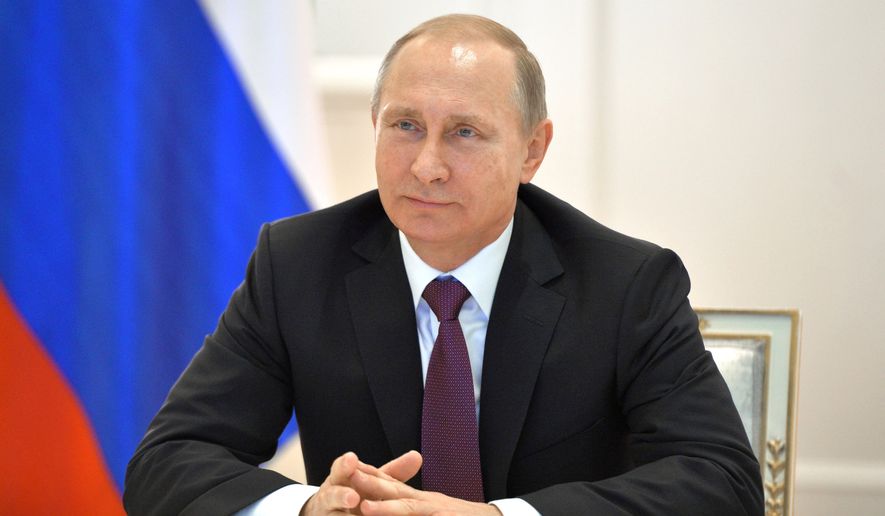MOSCOW (AP) — Russia named NATO’s military buildup near its border as the main military threat and raised the possibility of using precision conventional weapons as a “strategic deterrent,” according to the nation’s new military doctrine signed by President Vladimir Putin Friday.
NATO flatly denied it was a threat to Russia, and accused Russia of undermining European security.
The new doctrine, which comes amid Russia-West tensions over Ukraine, maintains the provisions of the previous, 2010 edition of the military doctrine regarding the use of nuclear weapons.
It says Russia could use nuclear weapons in retaliation to the use of nuclear or other weapons of mass destruction against it or its allies, and also in case of aggression involving conventional weapons that “threatens the very existence” of the Russian state.
But for the first time, the new doctrine says that Russia could use precision weapons “as part of strategic deterrent measures,” without spelling out when and how Moscow could resort to them.
The doctrine placed “a buildup of NATO military potential and its empowerment with global functions implemented in violation of international law, the expansion of NATO’s military infrastructure to the Russian borders” on top of military threats to Russia.
It pointed that that the deployment of foreign military forces on the territory of Russia’s neighbors could be used for “political and military pressure.”
NATO spokeswoman Oana Lungescu responded by saying in a statement that the alliance “poses no threat to Russia or to any nation.”
“Any steps taken by NATO to ensure the security of its members are clearly defensive in nature, proportionate and in compliance with international law,” she said. “In fact, it is Russia’s actions, including currently in Ukraine, which are breaking international law and undermining European security.”
Russia’s relations with the West have plummeted to their lowest level since the Cold War times, and NATO cut off its ties with Russia after it annexed Ukraine’s Crimean Peninsula in March. Ukraine and the West also have accused Moscow of fueling a pro-Russia insurgency in eastern Ukraine with troops and weapons, accusations the Kremlin has denied.
The U.S. and the European Union have responded by slapping sanctions against Moscow, which have deepened Russia’s economic woes and contributed to a sharp devaluation of the ruble.
___
John-Thor Dahlburg in Brussels contributed to this report.




Please read our comment policy before commenting.